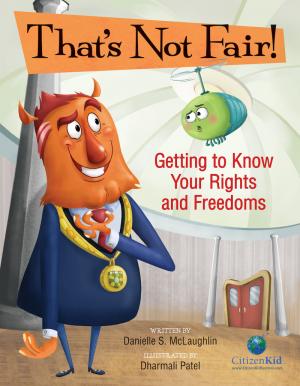
That's Not Fair! Getting to Know Your Rights and Freedoms
“Treating everyone the same way isn’t always fair, you know. Sometimes we have to be treated differently to give everyone the same opportunities.” – Councillor Twist
This is a powerful message that should have been central to the writing of That’s Not Fair! a book that explores the value of our rights and freedoms as citizens. Unfortunately, as I read, I found myself thinking, “That’s not fair!” In Our City, the cast of characters, led by Mayor Moe, comes very close to gender parity, but on closer inspection of the text, it becomes evident that male characters speak twice as often as female characters. The book itself does not even pass the Bechdel Test. (For a given work of fiction to pass the test, the work must have at least two women in it who talk to each other about something other than a man.) This could be a teachable moment, but it is not addressed by the author and is therefore unlikely to be used as such.
That’s Not Fair! contains six stories that examine different rights and freedoms through fictional issues taking place in Our City. In each story the City Council tries to make things better, but usually fails miserably. They’d likely have more success if they listened to what Councillor Bug has to say. She recognizes the problems with the laws that council is passing and says, in each story, “That’s not fair!” but every time the same thing happens – “no one was listening to her.” This is perhaps an accurate depiction of real life, a loud, blundering mayor, pushing through decisions regardless of what a single, dissenting, female voice might say, but I don’t think the book does enough to explain why this is so problematic. The only reference to Councillor Bug’s plight comes near the end of the book: “That is why it is so important to think about fairness. After all, it is only when some brave person (or bug) says, “That’s not fair!” that things can begin to change.” Great advice, but it wasn’t what was shown in the book. Councillor Bug spoke up, but her words never had any impact.
I think this book would be appropriate for junior level students and would connect well with the grade five social studies curriculum. It is certainly an excellent resource for exploring male privilege and could be an interesting springboard into class discussions about the different ways that men and women are treated in politics. Not fair, indeed.
Mandi Hardy is a member of the Peel Teacher Local.